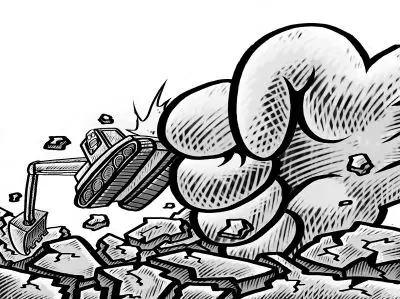Changes to China's one-child policy, in place for decades, have aroused heated discussion, with some demographers seeing the change as a step toward balanced population development.
Couples in China will be allowed to have two children if one of the parents is an only child.
"The change of policy is of great importance and a practical step toward balanced population development in China, but it is not the end of China's family planning policy," said Li Jianmin, demographer with Tianjin's Nankai University.
The one-child policy was introduced in the late 1970s to rein in the surging population by limiting most urban couples to one child.
The policy was later relaxed and if both parents were only children they could have a second child regardless.
The latest change comes as Chinese society ages and the growing burden of social pensions poses great challenges to society as a whole.
**ELDERLY CARE CONSIDERATION **
With the one-child policy, authorities believed they had set the stage for an economic boom and social advancement, and there is no doubt that the policy has been very effective in that respect.
The falling birthrate which resulted however, has thrown the growth of the aging population into sharp focus and led to shrinkage of the working-age population.
China's sixth national census in 2010 showed a fertility rate between 1.5 and 1.6, almost the same as some developed countries which are now plagued by aging populations.
Statistics from the National Health and Family Planning Commission (NHFPC) contend that China's population (1.34 billion) would be 400 million higher were it not for the policy.
"Both higher and lower fertility rates could hinder balanced development between population and the social economy," said Guo Zhenwei, a family planning official with the NHFPC.
China's peak population should be about 1.5 billion with a birthrate around 1.8. In addition, the labor force (940 million) decreased by 3.45 million in 2012, the first absolute decrease, and is expected to decrease by about 29 million by the end of the decade.
The elderly population meanwhile, keeps on growing with those aged 60 and over numbering nearly 200 million, 14.3 percent of the total, far ahead of the international norm of 10 percent. The figure is forecast to exceed one third of the population by 2050.
"Loosening of the one-child policy will slow the aging phenomenon and relieve pressure on pensions,"Li Jianmin added.
**POPULATION SPIKE CONCERNS **
Two days after the announcement, whether the changes will lead to a population spike has been a hot Internet topic, irrespective of family planning authorities insistence that the change will put not much pressure on food supplies or public services.
An online survey by newsifeng.com showed more than 63 percent of respondents keen have a second child, and about 30 percent saying no because of the high cost of raising a child.
Some 84 percent of the respondents said the change will have little influence on the total population, with only about 9 percent worried about a sudden increase. The survey had more than 190,000 respondents by Sunday afternoon.
Demographers however, argue that there is unlikely to be a population hike with the change of childbearing ideology and the increasing cost of raising a child. Chinese parents preferred to have many children in the past as they believed more offspring would bring more blessings and children were considered the best source of care for elders.
A survey by the NHFPC shows that some 15 million to 20 million people will benefit from the policy, but only about 50 to 60 percent of them are interested in having a second child.
"The policy change will not lead to population explosion: one or two children have met couples' fertility needs both in rural and urban areas," said Wu Cangping, an advisor with the China Population Association.
"The policy adjustment is not only to limit population growth, but also to propose a population development model which is commensurate with China's social and economic development," Wu added.
 简体中文
简体中文

